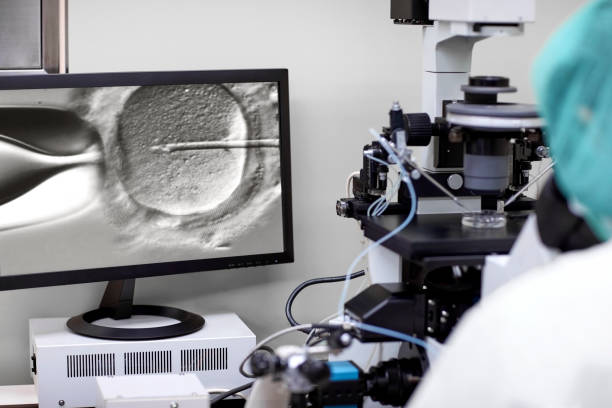Best ICSI Centre in Punjab
What is ICSI?
A method of treating infertility is intracytoplasmic sperm injection (ICSI). In a lab, live sperm is injected into an individual’s eggs. An embryo can be produced using this process. ICSI is most frequently used by medical professionals when a man’s infertility interferes with his capacity to conceive.
ICSI Procedures
After the physical examination and consultation with the infertility doctor, ICSI operations will start.
- Stimulation of the ovaries: To induce more than one ovulation, the doctor will prescribe a prescription for self-administrator injection (for 10–12 days) and an oral medication for egg stimulation. The doctor will schedule an ultrasound and blood test session at this stage to determine the number, size, and maturity of the eggs in preparation for additional operations.
- Retrieval: Either the guy ejaculates into a cup and provides a sample of sperm, or the sperm will surgically remove. There are several methods for getting the sperm out. The sperm retrieval procedure may occasionally perform later and will store.
- Fertilization: The embryologist will prepare the eggs and sperm after the egg retrieval. Under a microscope, the embryologist doing PGD will inject one single sperm into each developed egg. Therefore, PGD may perform with very little sperm.
- Embryo development: The development of the embryo starts after fertilization. The embryos will place within our Embryoscopes after first fertilization so they may continue to develop fully undisturbed.
- Transfer: After ensuring the patient is prepared for the embryo transfer by inspection and uterine cavity preparation. The process starts with an abdominal ultrasound to find the best spot to implant the embryo. After a one-hour rest period following the procedure, the patient can go home.
Who should receive ICSI treatment?
This ICSI treatment is appropriate for:
- Age more than 35.
- Fallopian tube stenosis on both sides.
- Unsuccessful with various medical interventions, such as IUI (IUI).
Benefits of ICSI Treatment in Punjab
- A couple may have genetic offspring.
- There are often fewer risks of a kid developing physical or mental abnormalities.
- Male infertility will treat.
Is there a higher chance of getting twins, triplets, or more if you do ICSI?
The doctor may fertilize many eggs using ICSI to improve your chances of conceiving a healthy child. It is possible to get twins, triplets, or more if you opt to transfer more than one embryo. Premature birth and other difficulties for the mother and the infants might be more likely with multiple pregnancies.
Is ICSI different from IVF?
ICSI is a form of IVF. With conventional IVF, your doctor implants an egg and many sperm on a laboratory plate. It is up to chance as to whether one of the sperm will enter the egg and fertilize it. ICSI encourages fertilization by sperm injection for pregnancy directly into one egg.
Book an Appointment
[contact-form-7 id="4479"]


